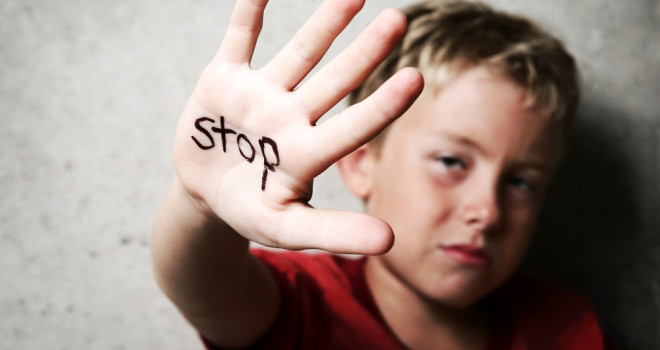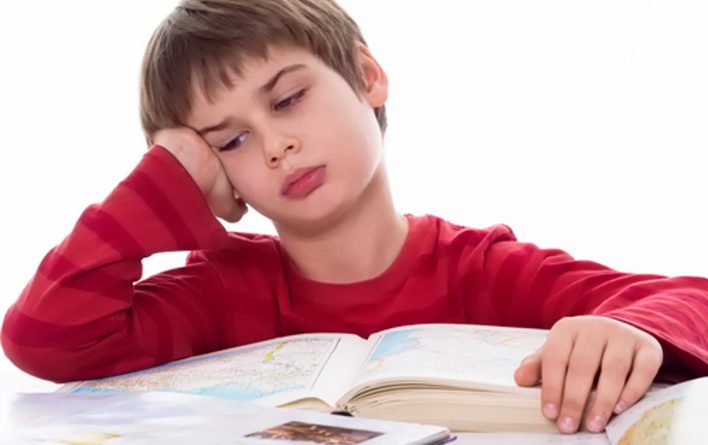Child Abuse & the Muslim Community

Child abuse is the dirty little secret no one wants to talk about yet in many homes across the world, it’s as prevalent today as it was centuries ago. According to www.childhelp.org, “Over 3 million reports of child abuse are made every year in the United States; however, those reports can include multiple children. In 2007, approximately 5.8 million children were involved in an estimated 3.2 million child abuse reports and allegations.” According to the World Health Organization (WHO), “Worldwide, approximately 40 million children are subjected to child abuse each year (WHO, 20014)”.
In Islam, we are taught to be gentle with our children and Prophet Muhammed (peace be upon him) was the best example of this. He would take children in his arms and embrace them. He was once hugging his beloved grandsons, Hasan and Hussain (peace be upon them), when Aqrah bin Haabis told him, ‘I have got ten children. So far, I have not kissed any of them.’ The Prophet (peace be upon him) responded: “The one with no pity for others is not pitied.” (Al-Bukhari and Muslim). In this way he was particularly compassionate towards children. When he saw a child crying, he sat beside him or her and talked with them, encouraging them to share their feelings. He also felt the pain of a mother for her child more than the mother herself. Once he said: “I stand in prayer and wish to prolong it. However, I hear the cry of a child and cut the prayer short for the anxiety which the mother is feeling.” (Al-Bukhari)
Many parents believe corporal punishment is necessary in raising productive members of society but research has proven the exact opposite is true. Children who have been raised in homes where corporal punishment has been used excessively have increased tendencies for aggressive acting out behaviors. Children who have been hit also tend to carry excessive anger and are easily prone to angry outbursts. Hitting children also models violence and teaches children that hitting is an acceptable form of communication when one is annoyed or frustrated. New research also has found spanking can impact overall intelligence: “While several studies in the past have alluded to the fact that spanking may reduce intelligence, this new study proclaims it as fact. Spanking creates stress, anxiety and fear and this can slow a child’s cognitive development. It can actually result in fewer neurons in the brain.”
What is Considered Abuse?
Most experts would not consider the open handed slap on the bottom as abuse but hitting a child with a closed hand or fist anywhere on the body, hitting the face or head in any way, and using an object to hit is considered abuse. It is recommended to use alternative methods of discipline rather than any type of physical punishment due to difficulty determining the fine line that separates abuse from mild punishment. Oftentimes mild punishment, especially out of anger, can escalate out of control, which leads to abuse. One study found “some 70% of child abuse cases were attempts to discipline through the use of physical punishment that escalated out of control”. (Kadushin & Martin; Straus). In addition to physical punishment, yelling, name calling, and put downs are considered verbal abuse/emotional abuse. Deprivation of any kind (food, water, sleep, outdoors) are considered torture.
In Ronald Pitzer’s study “What does research say about the effects of physical punishment on children?” the following case study sums up the mentality regarding the effectiveness of physical punishment on children.
“In Willard Motley’s novel, Knock on Any Door, the central character, Nick, ends up on death row convicted of murder after a long career of delinquency and crime. In the background of his career are intense hatred and fear of his father, primarily because of the frequent spankings and beatings he had received for minor (and later, major) infractions from his father during his growing up years. He didn’t even want to see his father (and mother) while in his cell awaiting execution. The father, who we have learned really loves his son, is severely shaken by his son’s terrible fate. ‘I can’t understand it,’ the father says. ‘I told him and told him, and I always whipped him when he did wrong—over and over and over again.’ But the young man in the death cell doesn’t understand the source of his troubles any more than the father does. He gives his aunt, who visits him in his death cell, the following advice for bringing up his newborn nephew: ‘Don’t let what happened to him happen to me, Aunt Rosa. Beat the hell out of him, Aunt Rosa. See that he does right. So this whole self-defeating pattern of reliance upon violence as the ultimate method of discipline (intended to communicate and teach) is passed on from generation to generation’.”
Many families resort to physical punishment due to their own past history, cultural beliefs and norms, lack of awareness of alternative methods, religious views, and lack of belief that alternative methods of discipline are effective. Many also lack the emotional regulation needed to effectively discipline their children without resorting to physical punishment. They might get easily frustrated and resort to physical punishment. This is why we are advised in Islam to fight our emotions and hold back our anger. Abu Hurayrah (may God be pleased with him) reported that a man said to the Prophet (peace be upon him), “Advise me.” He said, “Do not become angry.” The man repeated his request several times, and each time the Prophet (peace be upon him) told him, “Do not become angry.” (Al-Bukhari)
Furthermore, The Prophet Muhammad (peace be upon him) said: “The strong man is not the one who can overpower others (in wrestling); rather, the strong man is the one who controls himself when he gets angry.” (Ahmad). And in another tradition he said, “The strongest man is the one who, when he gets angry and his face reddens and his hackles rise, is able to defeat his anger.” (Ahmad)
Discipline Vs. Punishment
Children require discipline in order to thrive as individuals. Children need boundaries and structure in their lives. However discipline does not necessarily mean punishment. We can discipline children without resorting to any physical punishment and still have children that are happy, healthy, and well behaved.
Think of discipline as a big umbrella and under that umbrella, a small portion is punishment. Under that umbrella of discipline also includes corrective behavior, redirection, teaching decision making, teaching responsibility, reinforcing positive behavior through praise and tangible rewards, and opportunities to learn from mistakes. Many people associate discipline with only punishment. Punishment, if used correctly, should only be a small portion (if any) of the overall discipline process.
Discipline can start for children as young as 6 months old. Most parents use the discipline strategies of redirection, correction of behavior, helping children learn from mistakes they’ve made, and catching their children being good and praising them for it, yet don’t view all this as discipline. Discipline helps children learn responsibility and appropriate decision making. All of this, as you can see, is the opposite of punishment.
The purpose of discipline should not be to have total control over your kids at all times but rather to illicit cooperation from your kids to make the choice of behaving appropriately because it is in their best interest. It’s crucial that you begin to emphasize cooperation at an early age. Children need to learn that it feels good to behave and understand there are privileges to appropriate behavior. Discipline teaches kids to control their own behavior; this in turn increases their self confidence.
Are there times where you have to take charge of the situation? Of course. If a child is engaging in a dangerous behavior such as playing with the wall socket or going into the cleaning supply cabinet, you must remove the child from that situation. Can this be a learning opportunity? Definitely! It’s a good time to discuss the dangers of those behaviors with your children. I believe children as young as 1 can understand this. Even if they don’t fully grasp the concept, they can at least get a foundation for understanding right from wrong. Children can benefit greatly from gaining meaning from their environment and for their behavior. Always look for teaching opportunities to discuss appropriate behavior with your children…don’t just wait for them to act out. If you see inappropriate behavior on TV you can discuss what you consider to be the better choice and ask your toddler or school age child what they think about the behavior. There are numerous children books on the subject of appropriate behavior that you can read to your child and have a discussion afterwords.
Believe in your child’s ability to behave appropriately and making good choices in their behavior. Choose your words carefully in how you describe your child. When you say “Oh, he/she is just a bad boy/girl” in front of your child, they internalize it and prove you right. Tell them you feel they are capable of making good behavior choices. Reward and praise them when they do make good choices. Acknowledge and praise appropriate behavior EVERY TIME regardless of how small the gesture.
Many parents make the mistake of allowing their child to do as he/she pleases until they are 5-6 years old and then decide to incorporate punishment in controlling their behavior. Without the foundation of cooperation and responsible decision making from an early age, it makes gaining cooperation at a later age much more difficult. As your children become older, your level of control over your child’s behavior lessens. For this reason, it’s crucial to build trust and cooperation when your children are very young. Many parents realize this when their children become teenagers. Without the foundation of cooperation and trust, attempts to control the behavior of teenagers becomes unsuccessful. Teenagers need to have the ability to make good responsible decisions on their own. As children grow, your level of discipline will also change. There will be some things you’ll be more willing to negotiate on. As children demonstrate more responsible behavior, you can allow them more control in their lives, more incentives and privileges (later bed time, more time with their friends, etc.). Some areas should not be negotiable such as appropriate behavior, focus on success in school, chores around the house, etc.
The essence of discipline is teaching children self control. When children learn self-control, they can make responsible decisions. If they are always under total control at home, they won’t learn to be in control of themselves which leads them to be out of control!
 Dr. Nafisa Sekandari is the director and founder of Mental Health 4 Muslims.com. Dr. Sekandari is currently licensed and practicing in California and Arizona. Dr. Sekandari is also the current founder and director of MH4M Counseling and Education Center in Phoenix, Arizona. Additionally, Dr. Sekandari is a published author and lecturer.
Dr. Nafisa Sekandari is the director and founder of Mental Health 4 Muslims.com. Dr. Sekandari is currently licensed and practicing in California and Arizona. Dr. Sekandari is also the current founder and director of MH4M Counseling and Education Center in Phoenix, Arizona. Additionally, Dr. Sekandari is a published author and lecturer.


I know 2 boys that livr with there mother and father upstairs from us at 1767 Jackson street British Columbia that stalk and molest women and children they’ve tried with me. I live below them in there basement. They’ve bin Saying there gonna rape my kids and I’ve called the police for stalking already 3 times . But haven’t bin able to catch them with enough evidence
That’s discusting ananda, I hope they are brought to justice!!!!
My father emotionally abuses me. Every time I’ve endured it. But one day I got really angry and decided to fight back. I behaved really bad with him and told him to leave the house. Now I am feeling really bad since in Islam it is said to behave well with your parents. WHAT SHOULD I DO? Have I done something wrong? PLEASE HELP ME OUT. Please.
Is there a Law in Islam, to punish the Criminals who sexually abuse children ?
Why is Islam silent about this serious crime and why does it not recommend stoning to death ?
Of course there are laws about criminals who sexually abuse children but whether they aree enforced is another issue.
[…] https://mentalhealth4muslims.com/child-abuse-the-muslim-community/ […]
My mom hits me with the clothes hanger, wire charger, belt, and hand(pulling hair),
and i am muslim she hits when i get a bad mark or when i lose somthing even when i talk to her sometimes she thinks i am saying bad things to her. She hits me till i bleed and have big bruses. Is that haram?
Is abusing your child haram?
for an example if they do something bad and your parents hit you really bad like until you bleed or have brusies would it be okay in islam?
Yes it is haram and it would never be ok in Islam to abuse a child to the point of bleeding and bruises. We can discipline children and correct their behavior but not in a way that causes harm. Children have rights in Islam and should be protected from harm.
I am 13 yrs old and my father make fun of my face as I am teenager and all those pimples and stuff. He hits me on every small thing without even knowing the truth. I cry and cry and it is literally emotionally abusing me in every way
I’m sorry to hear about your situation with your father. Unfortunately our culture encourages physical abuse but that doesn’t make it right. Being 13 you may not have the power to do anything about it but find people you can talk to, journal out your feelings, and know it will get better. Your father will not have the power to hit you for much longer. Hang in there. It will get better.
Hello Miss Dr. Nafisa Sekandari i just wanna ask a simple question and i want you to answer it according to the teachings of Islam ,if our life is predestined does it affect a mans future or destiny by his family’s involvements and neglecting him and supporting him and leads the man to be emotionally challenged and leads you completely astray you can say that what if your family is your misfortune and and contributes the negative emotions inside you and you become helpless achieving your goals tihout any support.
I’m not a Muslim scholar so can’t answer your question based on the teachings of Islam but I know no one else can take blame for how our life turned out. We are responsible for the choices we make regardless of our familial background. Our life, our actions, the choices we’ve made are all our responsibility. You should consult with an Islamic scholar for a more precise answer to your question.
my dad hits me with a belt
In most countries, that would be considered child abuse.
my mother beats me and my younger sisters for every little mistake we make, wether it was intentional or not. i am bruised and hurt and so are my sisters. my mother thinks its okay to be abusive towards us, but i am struggling mentally and he has no idea that shes making my mental health so much worse. i tried explaining to her how she needs to stop being abusive but she always tells me that im just a child and dont know what im saying. i am 14 years old and i understand the difference between abuse and obedience, she is scarring us and we cant do anything about it since my mother was also raised that way. what can i do to make this stop? please i need help. are there any hadiths or quran verses to show my mother that abuse is haram?
It’s not OK for your mother to beat you and leave you bruised. Yes, we should correct the behavior of our children but this doesn’t have to include beating and abuse. Also, just because she was raised that way, it doesn’t make it ok for her to raise you that way. This article has some really good info about hadiths and the responsibility of the parent towards the child. https://opinion.premiumtimesng.com/2019/11/15/you-will-be-held-responsible-on-what-happened-to-your-children-by-murtadha-gusau/. I hope it helps you.
My parents never physically abused me but they mentally abuse me to death
[…] Nefisa Sekandari (17 April 2017). Child Abuse and The Muslim Community. Retrieved from https://mentalhealth4muslims.com/child-abuse-the-muslim-community/ […]
i am a mother of 2 boys and my husband verbally abuses me more often in front of the kids which has in turn made my 4 years talks to me harshly and gives me chicky answers. this in turn has made me beating him almost all the time out of anger and i hate it please help me .
Use other forms of discipline, or divorce your husband.
yeah they should not hit kids